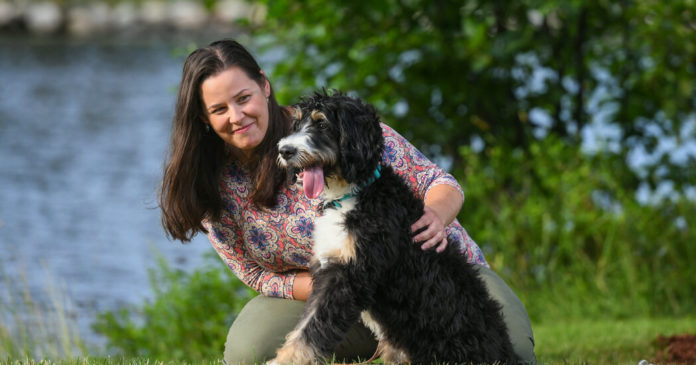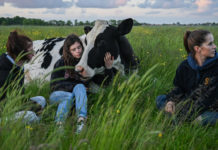Fortunately for me, our relationship did not end with the story’s publication. And though I may not be any closer to a definitive answer to that question, it seems clear, looking back over my emails and texts with Katie, that the information spurred her to live in the moment.
She did Polar Bear dips on Super Bowl Sundays in Long Beach and took spur-of-the-moment trips to Hawaii, Costa Rica and South Africa. In 2008, she left her occupational therapy work to become a patient advocate at a pharmaceutical company seeking to build relationships with people who have movement disorders. In 2017, she met Pope Francis, who was hosting families affected by Huntington’s for a blessing at the Vatican. In 2018, she ran the New York City Marathon to help raise money for the Huntington’s Disease Society of America. “Apparently I was too slow to make it into the NYTimes,” she texted me.
“It definitely made me look at things differently,” Katie told me recently. “Both the realization that, ‘Oh, I have to plan for the future,’ but also, like, ‘If I can do this fun trip right now, I’m definitely going to do it.’”
Katie also sought to use her genetic knowledge to have a biological child without passing on the gene variant. In 2011, she underwent two rounds of in vitro fertilization to create embryos with donated sperm, first securing a promise from a cousin to care for a child should Katie become symptomatic earlier than expected. But in what her friend Colleen recalls as a “high pain moment,” all of the viable embryos, when screened, turned out to have the disease-causing gene.
Katie set aside her hopes of becoming a parent. She remains estranged from her own mother, who learned only through Katie’s test result that she herself carried the variant.
Katie has participated in every Huntington’s research study that came along, including traveling to the University of Iowa for three spinal taps. And she has advised dozens of other people with Huntington’s in their family. It is an individual decision, she counsels them. It may be easier to live without knowing. It just depends on who you are.
“I don’t advise them to not get tested, but I do advise them to just, you know — to think about it,” she told me. “Because once you find out, you can’t not find out.”
Source : Nytimes














